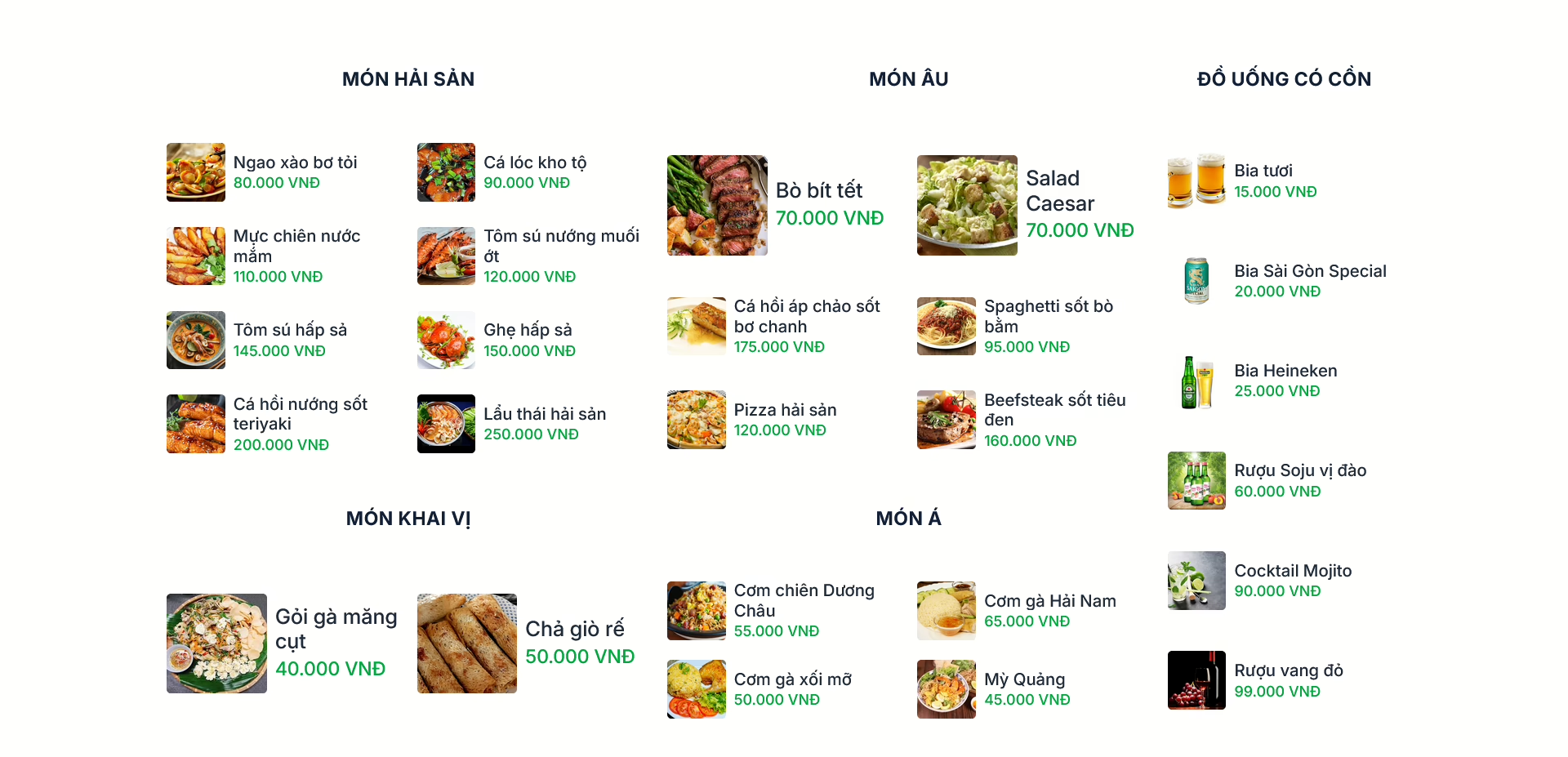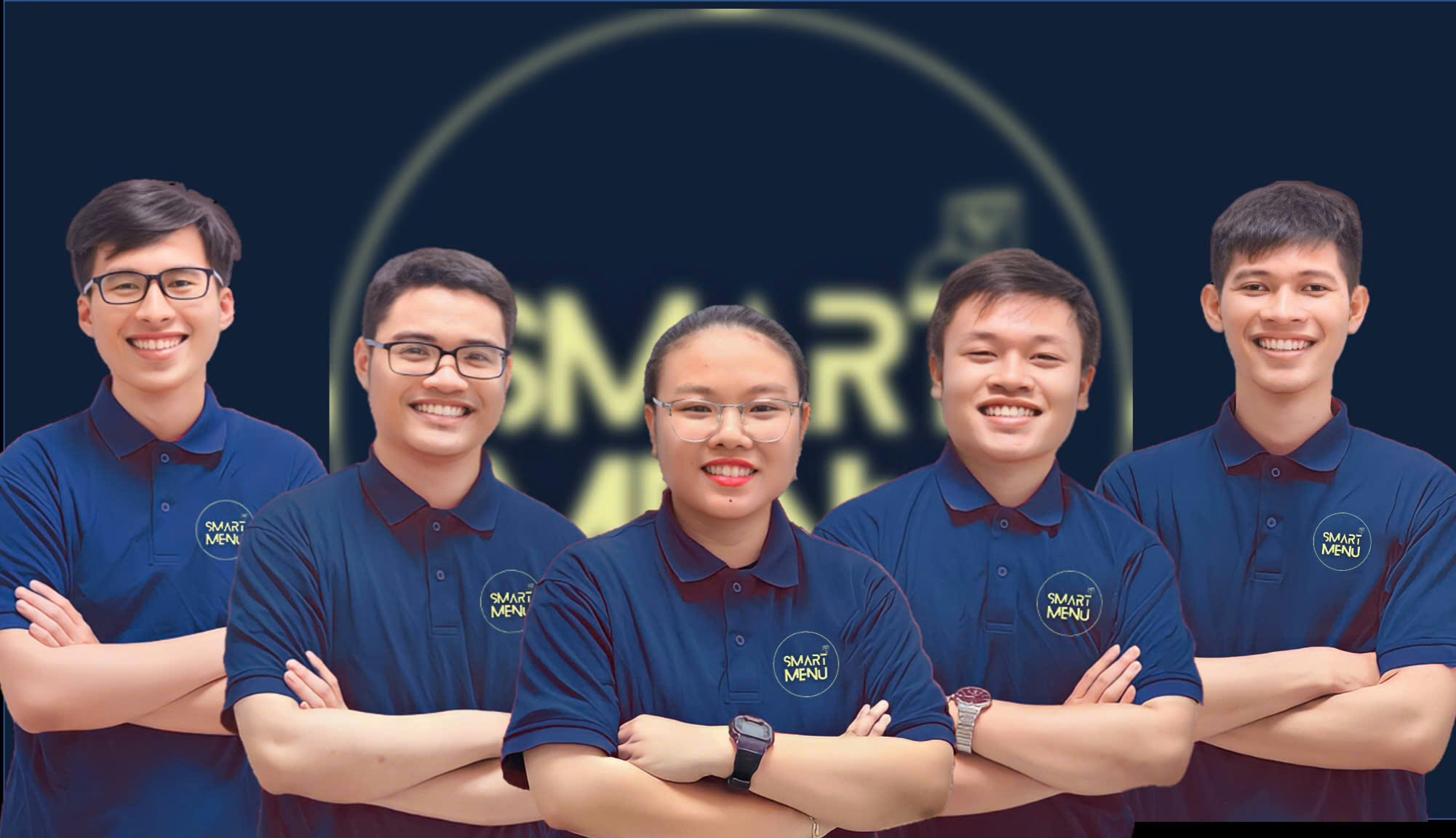In an era where personalized experiences are the key to winning over customers, five students from Cohort 17, majoring in Software Engineering at FPT University, have developed SmartMenu — an intelligent menu system powered by facial recognition AI.
SmartMenu is the graduation project of Pham Ngoc Quyen, Bui Ngoc Bao Tran, Nguyen Trung Dung, Ngo Duong, and Truong The Canh. The project reflects the innovative spirit of FPT University students in applying high technology to address real-life challenges — particularly in the F&B sector (food and beverage services in restaurants, hotels, resorts, and eateries).
AI “Reads” Faces to Recommend Personalized Dishes
Harnessing the power of artificial intelligence and facial recognition, the five students created SmartMenu with the aim of redefining the food ordering experience in restaurants. As soon as a customer enters an area monitored by a camera, the system automatically recognizes their face and classifies the user.

For returning guests, SmartMenu recommends dishes based on previous dining history and personal preferences. For new customers, it analyzes factors such as gender, age, and facial expression to suggest meals that align with their current needs and mood.
Beyond reducing time spent choosing meals, SmartMenu offers a sense of being understood and served in a personalized manner — where each ordering experience feels thoughtful and tailored. In an increasingly competitive market, meeting customer needs from the very first interaction not only helps retain clientele but also elevates brand image, turning every meal into a chance to strengthen customer loyalty.

Speaking about the inspiration behind the project, Bui Ngoc Bao Tran shared: “How many times have we found ourselves lost in an endless menu, only to settle for something familiar because we couldn’t decide? SmartMenu was born to solve that small, recurring frustration. We believe that a truly intelligent menu should be like a companion who understands each customer’s taste.”
In traditional business models, changing a menu is a complex and costly process — from hiring designers, editing content, and printing, to manually distributing updates to each branch. However, SmartMenu solves this inefficiency with an intelligent management platform that allows business owners to easily design, update, and adjust menus directly in the system. With just a few simple steps, updates are instantly synchronized across the entire chain — eliminating printing delays and inconsistencies between branches.
Overcoming Challenges with Dedicated Faculty Support
For the students behind SmartMenu, integrating AI into a practical application was no easy task — especially as it was their first time working with facial recognition in a real-world setting. Technical factors such as lighting conditions, camera angles, and device resolution — though seemingly minor — posed significant barriers that directly affected the system’s accuracy and performance.
Rather than avoiding the challenge, the team took a systematic approach: breaking the problem into parts, experimenting with multiple models, testing in diverse environments, and proactively expanding their knowledge beyond the curriculum. This process not only enhanced the product’s quality but also sharpened the team’s technical thinking, problem-solving ability, and collaborative spirit.
Throughout the project, the team was guided by two Software Engineering lecturers — Nguyen The Hoang and Nguyen Van Vinh. According to Bao Tran, their support was the greatest source of reassurance as the team navigated each stage of development.
“Our lecturers helped us define the scope, shape the direction of implementation, and provided in-depth feedback at every stage. We regularly reported progress through both in-person and online sessions, and were also coached on how to structure, present, and complete our project documentation professionally. Thanks to that, we felt confident in pursuing this entirely new journey,” Tran shared.
Tran believes that in the digital age, where technology is reshaping industries, understanding and responding to individual customer needs from the first interaction will soon become the standard — not just a competitive edge.
“In every aspect of life, AI will take on a central role — from analyzing consumer behavior and optimizing service processes to real-time personalization of products and services. SmartMenu is evidence of that trend: transforming how brands proactively manage customer experiences across their store chains with more flexibility and efficiency,” she noted.
Taking the example of Quy Nhon — the emerging city where Tran and her teammates currently study — she pointed out the rise of modern business models in the local market. “SmartMenu could be a breath of fresh air, helping local store chains quickly adopt technology, enhance customer experience, and systematically improve their competitiveness on the modern business map,” she affirmed.



